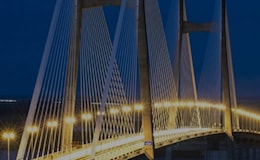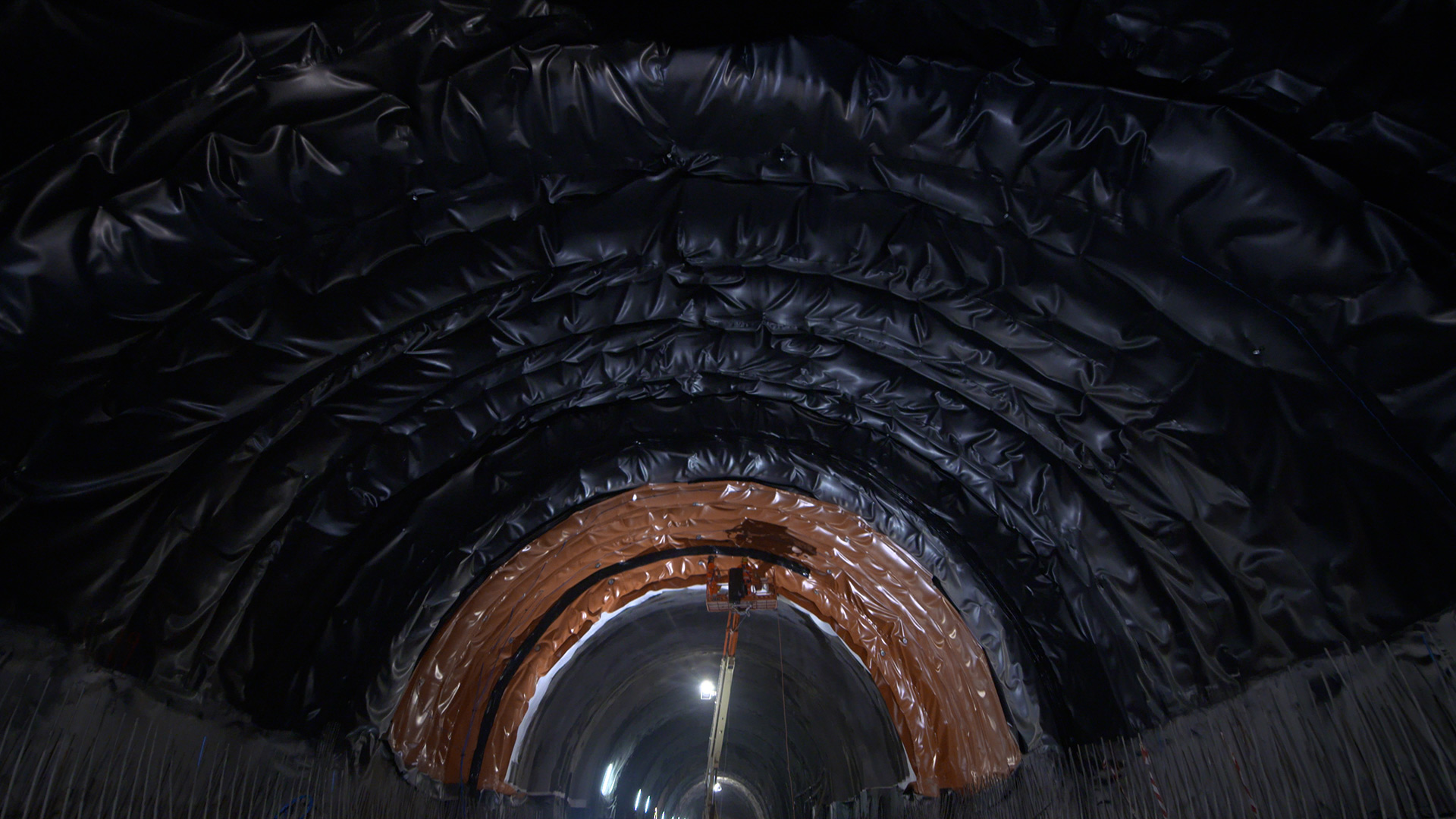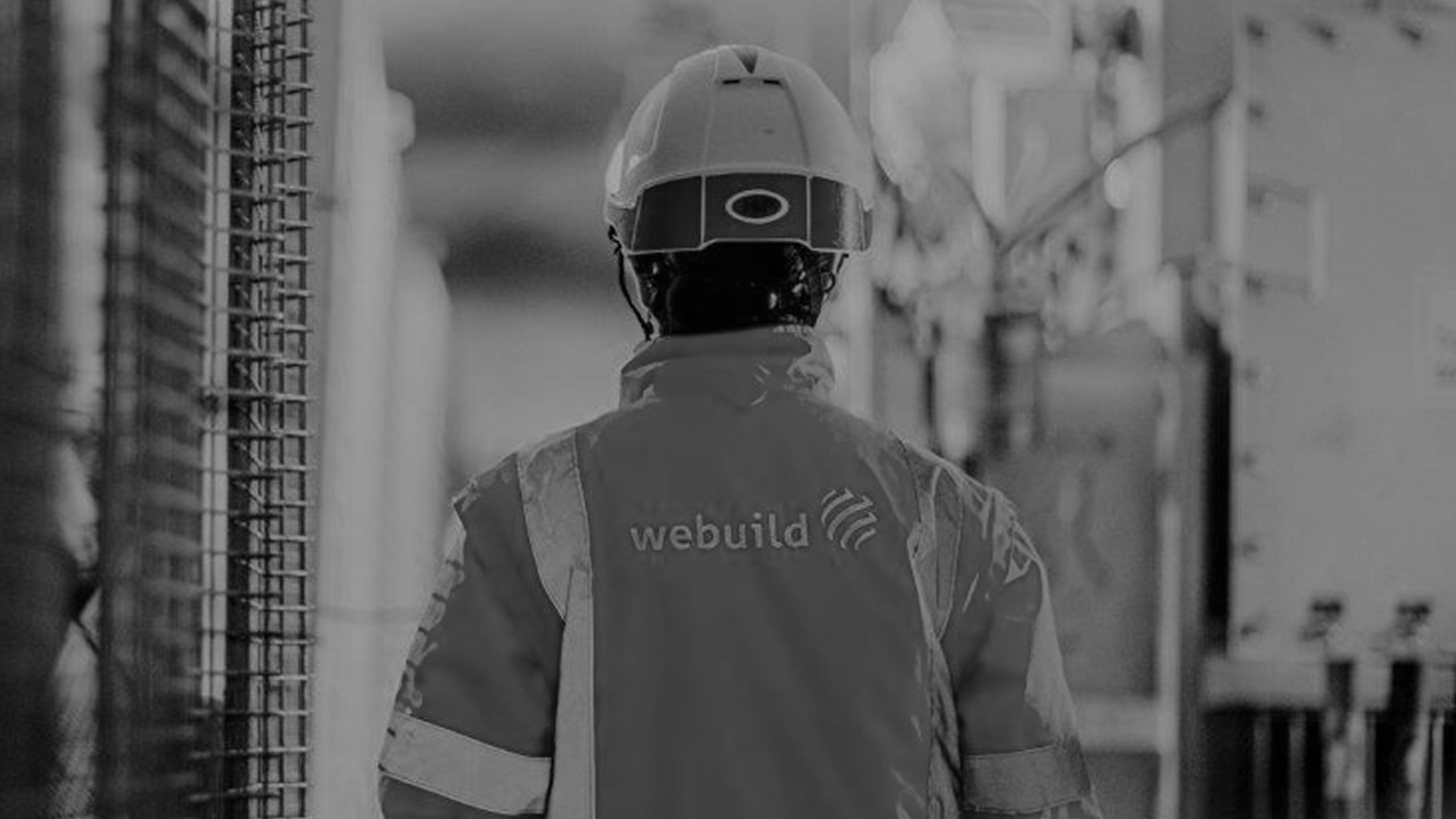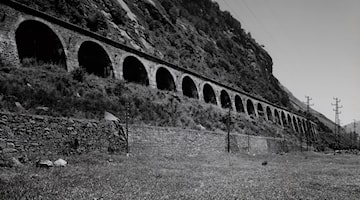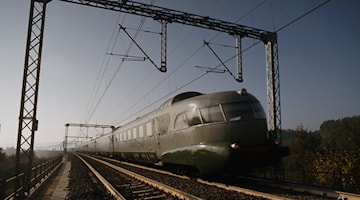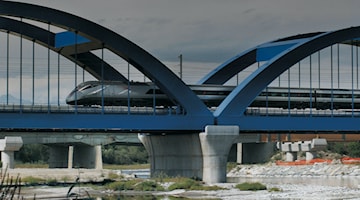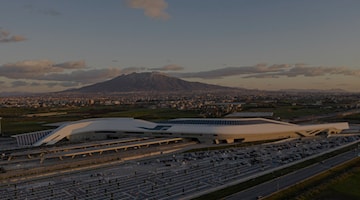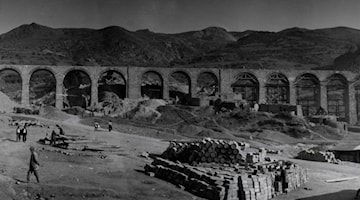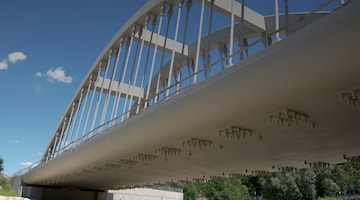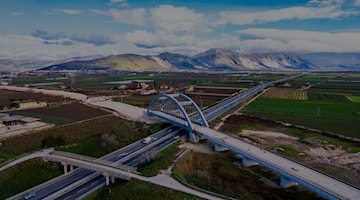The European homeland

BRENNER BASE TUNNEL, AUSTRIA AND ITALY
A single market and free movement are the pillars of the European Union, officially established in 1993 with the Maastricht Treaty, already envisioned by its pioneers amid the rubble of World War II. A happy ending after nearly 2,000 years of tension and conflict spanning the long history of the old continent: from the glories of Ancient Rome to the Barbarian Invasions, from the Carolingian Empire to the Europe of the Crusades, from the French Revolution to the World Wars.
What really unites Europe as we know it today, however, in its longest period of peace, are, first and foremost, its connections. It is no coincidence that one of the strategic axes of EU policy is the Trans-European Transport Network (TEN-T), a single great interconnected network from Finland to Malta, from Berlin to Palermo. This includes the new railway line from Munich to Verona, the pivot of which is the Brenner Base Tunnel. With its 55 km of tunnels from Fortezza to Innsbruck, which connect with the existing railway around the Austrian city, reaching an overall length of 64 km, the Brenner is the longest underground rail link in the world, located in a strategic and symbolic area at the heart of the European Union.
The tunnel will be crossed by high-capacity high-speed freight and passenger trains in just 25 minutes, a reduction of 69% from the current 80-minute travel time. A remarkable engineering feat, involving the excavation of 1,150,000 m3 of earth and rock, the use of 280,000 m3 of concrete, and consolidation of the terrain with techniques like Quick Set Jet Grouting (QSJG) and Roto Injection Controlled Parameters (RICP), as well as pre-consolidation of the soil through freezing for the Isarco River Underpass section.
A great example of collaboration between Austria and Italy, this crucial link between the Mediterranean region and Northern Europe also has considerable benefits for the environment, not only because of the zero impact that the movement of all the materials needed for the work has on the territory, but also because of the significant reduction in CO2 emissions: it has been estimated that use of the Brenner Base Tunnel will eliminate 466,000 tons of carbon emissions a year.
The project lots include the excavation of 38 km of tunnels (completed) in the Tulfes-Pfons section in Innsbruck; Mules 2-3, with the excavation of 65 km of tunnels; and the Isarco River Underpass, 5.8 km of railway tunnels (completed) starting in Fortezza and running 240 meters below the river bed. This was the most technically complex part of the entire project, requiring injections of chemical and cement mixtures and ground freezing with liquid nitrogen. A truly extraordinary undertaking given the technical and engineering difficulties; as Jacques Chirac said, «The construction of Europe is an art: the art of the possible», and in this case, of the impossible too.

THE WORK AND THE TECHNIQUE
KM TUNNEL LENGTH
M³ EXCAVATION (Isarco Underpass lot)
M³ CONCRETE (Isarco Underpass lot)
M³ EXCAVATION (Mules 2-3 lot)
M³ CONCRETE (Mules 2-3 lot)
M³ SOIL TREATED WITH JET GROUTING (Isarco Underpass lot)
EMERGENCY PASSAGE (Tulfes-Pfons lot) LENGTH 9,132 M EXCAVATED WITH TRADITIONAL METHODS
EAST INTERCONNECTION (Tulfes-Pfons lot) LENGTH 2,150 M
WEST INTERCONNECTION (Tulfes-Pfons lot) LENGTH 3,783 M
Brenner Basis Tunnel (BBT SE)
Isarco Underpass: Isarco Scarl (consortium led by Webuild, with Strabag, Collini Lavori, Consorzio Integra)
Mules 2-3: Brennero Tunnel Construction Scarl (consortium led by Webuild, with Ghella and Pac)
Tulfes-Pfons
Webuild and its Swiss subsidiary CSC Costruzioni
The Brenner Base Tunnel is a cutting-edge construction project to improve transport in central Europe, and one of the most challenging in engineering terms. Once completed, the tunnel will pass below the mountain, with an incline from 4 to 7%.

CULTURAL INSIGHTS


Less traffic, more road safety!
With Brenner Base Tunnel the traffic congestion of the A22 (the pass in 2022 was traversed in both directions by 11 million light vehicles, both cars and motorbikes) and pollution will be drastically reduced.
The Brenner still is the Alpine pass with the most traffic: during 2022, 2.45 million heavy vehicles passed through it, against the 810,000 of all Swiss passes. In 2024, there was a 1.2 percent decrease compared to the 2.4 million truck transits recorded in 2023 — a reduction of approximately 28,000 heavy vehicles.
The new railway connection, which will not be used exclusively for freight transport but will also be accessible to passengers, is expected to further ease highway traffic and improve overall safety. In 2024, the accident rate in this area was 15.97 points — consistent with the trend of previous years, yet fortunately below the national average.
You could also be interested in


